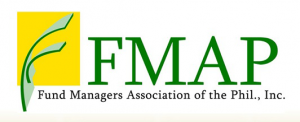During the 2016 FMAP 9th Annual Convention, ING Bank Manila’s economist, Mr. Joey Cuyegkeng, presented his outlook on the Philippine macroeconomics and fixed income space. He still expects – above-trend GDP growth (6.2% for 2016 and 6.0% for 2017), which will be driven by local developments. He thinks that since inflation remains benign, lower-than-expected inflation during the first two months of 2016 may lead to a future downgrade in BSP’s inflation targets, although ING Bank still maintained its expectations of 2% and 3% headline inflation for 2016 and 2017. He also sees any credit rating upgrades prior to the election as highly unlikely, as credit rating agencies will likely wait for results of elections and fiscal plan of new government. But he spent most of his time discussing about the fiscal side, where he highlighted his views and the risks he sees. He noted that the new administration will inherit favourable fiscal position from the current administration (0.3% fiscal deficit as of September 2015 vs. 5% in 2002). Despite expectations that FXTNs will rise by 6% in 2016, he thinks that new government debt issuances will remain manageable. He acknowledged that the slowdown in remittance growth (7% remittance growth in 2015 vs. 7% growth in 2014), plus widening trade deficits, led to the shrinkage of current account surplus, but also believed that structural inflows will continue to grow given expectations of continuation of strong IT/BPO sector growth. He sees fiscal risks from: a) deviations between actual and forecast GDP assumptions (1% increase in actual inflation & GDP will increase budget balance by ~Php20 billion, while Php1 depreciation leads to Php8.4 billion rise in budget balance, and 1% increase in LIBOR will cut budget balance by Php4 billion); and b) implementation of populist measures may hike fiscal deficit by 3.4% (likely measures such as more infrastructure spending, income tax reform, 5% cut in corporate tax rate, and EO 201 / salary hike for government employees, will increase fiscal deficit by 2.7%, while other measures such as the expansion of 4Ps, free education, and salary increase of AFP/PNP, will widen deficit by 0.7%). Any significant worsening of fiscal deficit will cause upward pressure on yields and may lead to warnings or downgrades from the credit rating agencies.
Moving on to the fixed income space, he noted that the 2Y-10Y spread of 30bps in December already widened cto 56bps in Feb, and that he expects FXTNs yield curve will return to normal steepness once the situation globally stabilizes. The big question mark is how fast the return to normal steepness would take but he noted that it took 6 months for spreads to normalize following after the taper tantrum in 2013. For the ROPs, he expects modest weakness but he added that spreads will not widen significantly given improved fundamentals relative to the situation in 2013. Moving on to currencies, he observed that PHP movements were largely influenced by external developments – both positive (more appreciation, e.g. BoJ QQE) and negative (e.g. taper tantrum, Fed lift-off and CNY mini-devaluation). He also noticed that Bloomberg PHP forecasts were downgraded in two months (further depreciation), but ING Bank still expects 2-3% depreciation.
Regarding the May 2016 elections, he highlighted the increasing importance of millenials, which represent 46% of the 54.4 million voters, as well as the need to educate them. Mr. Cuyegkeng wants the new administration to: a) ensure good growth and moderate inflation; b) improve governance; c) enhance infrastructure and social services; d) expand the employment gains; and e) implement reforms on competition and taxes. For a sustainable growth, he suggests the following: a) guard macroeconomic gains; b) enhance gains against corruption; c) raise absorptive capacity to improve credit rating; d) expand beneficiaries of high growth; and e) implement tax reform. He ended his presentation by discussing about ways for the trust industry to grow further, which include: a) more innovation and competition; b) moderation of fees and improvement in accessibility; and c) implementation of market reforms.
by: Rafael dela Costa
